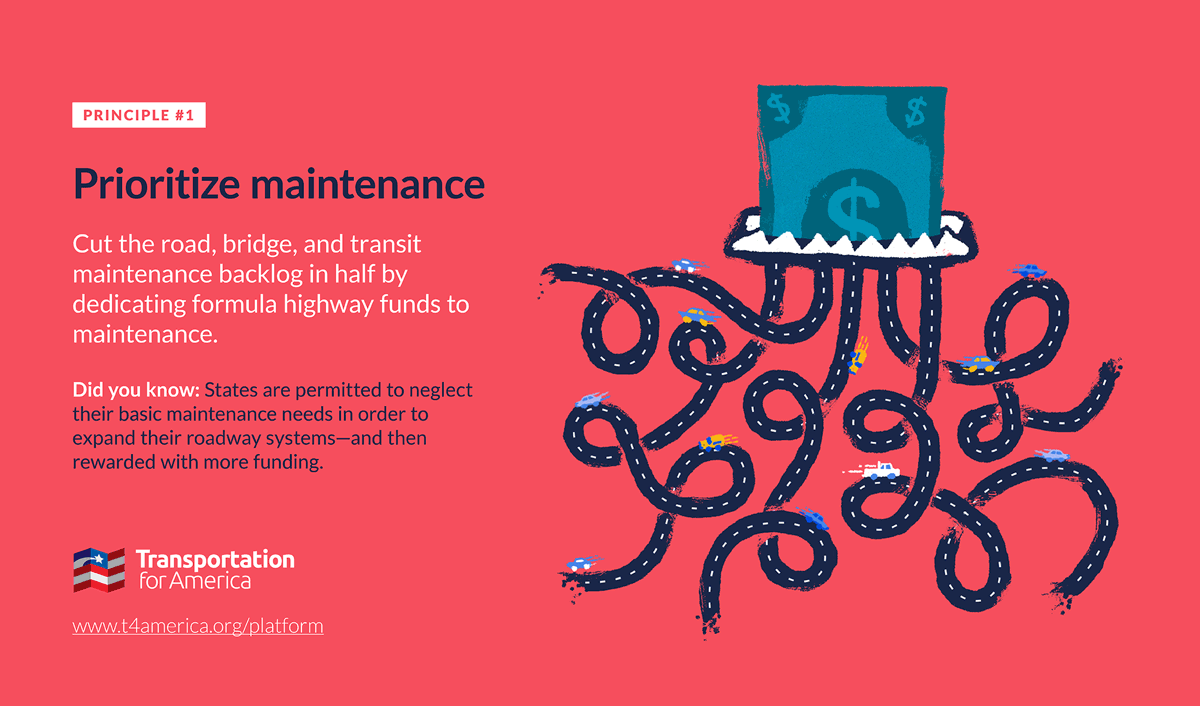Federal transit funding delays grab headlines across the country
President Donald Trump reportedly consumes a lot of media, so what better way to get the administration’s attention than by going to the media. Since we launched Stuck in the Station this summer—which catalogues the egregious (and wholly avoidable) delays in transit funding under this administration—dozens of media outlets across the country have covered the news.

Some of the outlets are those you might expect, which regularly cover transportation and urbanism issues. Streetsblog USA declared that the Federal Transit Administration has “gone rogue.” CityLab cited the “splashy countdown clock” in cataloguing the inexplicable delays to major transit projects.
Understandably, reporters and editorial boards in cities with transit projects on the “awaiting funding” list also are taking a strong interest. News outlets in Tampa, FL, Tempe, AZ, Sacramento, CA, Atlanta, GA, and New York, NY all questioned how the delays will ultimately affect long-awaited projects in their cities, and the taxpayers who are already committed to footing half or more of the bill in most cases. In an editorial, the Los Angeles Times highlighted the central role of the Purple Line Subway extension in the 2028 Olympics. The line will eventually connect athletes housed at UCLA with sporting venues across the city, if it’s completed on time. But due to funding delays, “whether the project meets its deadlines is in the hands of the Trump administration.”
“But local and state dollars cannot replace federal funding. Nor should they. The federal government has a shared national interest in a country that’s safe and well-connected, and where people and goods move efficiently. The Purple Line subway is the perfect example. It will help move people through one of the country’s most congested corridors.”
–The Los Angeles Times.
Similarly, the Star Tribune editorial board (in Minneapolis, MN) pleaded with the Trump administration to approve funding for a major light rail extension before civil contractor bids were set to expire. At this point, according to the paper, the only thing holding back the project is the lack of expected federal funding. “A longer delay would almost certainly mean higher costs and could unravel the project’s painstakingly woven funding arrangements, achieved through years of arduous political exertion by jurisdictions along the proposed 14.5-mile line,” the editorial board notes.
None of the cities mentioned here have received grant agreements from the USDOT as of this writing, leaving the future of their projects (and years of hard work) in limbo. Los Angeles and Minneapolis both received Letters of No Prejudice—though such letters do not guarantee any future federal funding—and have begun construction. In essence, these two cities are taking multibillion-dollar gambles, though ones predicated on the expectation that USDOT will continue approving transit grants as they always have through the last decade or two.
President Trump has been in office for almost two years now, but the administration has only spent a measly 23 percent of the $2.3 billion that Congress appropriated to fund new transit capital projects since 2017. (Though USDOT has reportedly approved the Lynwood light rail project in the Seattle region, no final funding agreement has yet to be signed or money sent out the door. That could happen before the end of the year and would represent the first multi-year, big-ticket full funding grant agreement advanced solely by this administration.)

While the president himself hasn’t responded to any of this media coverage—based on his tweets at least—USDOT definitely has. During a recent speaking engagement, Jane Williams, the top administrator for the department that oversees the transit grant program, seemed irritated by all the coverage the funding delays have been getting. “It seems to occupy 80 percent of the attention,” Williams said, “it is the elephant in the room.”
But when you’re failing to do your job, people, including the media, tend to notice. So get to work.



















